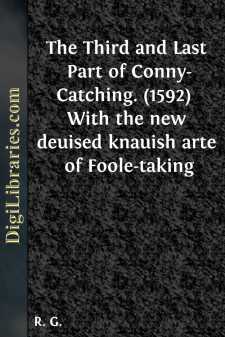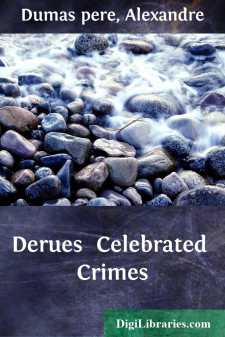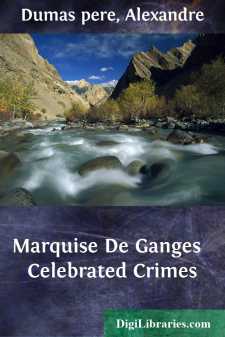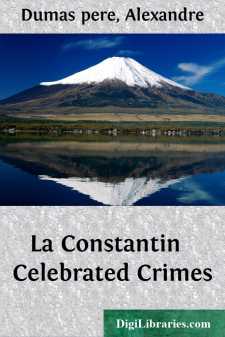True Crime
- General
General Books
Sort by:
CHAPTER I On Sunday, the 26th of November, 1631, there was great excitement in the little town of Loudun, especially in the narrow streets which led to the church of Saint-Pierre in the marketplace, from the gate of which the town was entered by anyone coming from the direction of the abbey of Saint-Jouin-les-Marmes. This excitement was caused by the expected arrival of a personage who had been much in...
more...
CHAPTER I Some royal names are predestined to misfortune: in France, there is the name "Henry". Henry I was poisoned, Henry II was killed in a tournament, Henry III and Henry IV were assassinated. As to Henry V, for whom the past is so fatal already, God alone knows what the future has in store for him. In Scotland, the unlucky name is "Stuart". Robert I, founder of the race, died at...
more...
Towards the end of the year 1665, on a fine autumn evening, there was a considerable crowd assembled on the Pont-Neuf where it makes a turn down to the rue Dauphine. The object of this crowd and the centre of attraction was a closely shut, carriage. A police official was trying to force open the door, and two out of the four sergeants who were with him were holding the horses back and the other two...
more...
About the end of the year 1639, a troop of horsemen arrived, towards midday, in a little village at the northern extremity of the province of Auvergne, from the direction of Paris. The country folk assembled at the noise, and found it to proceed from the provost of the mounted police and his men. The heat was excessive, the horses were bathed in sweat, the horsemen covered with dust, and the party...
more...
by:
R. G.
TO ALL SVCH AS HAVE receiued either pleasure or profite by the two former published bookes of this Argument: And to all beside, that desire to know the wonderfull slie deuises of this hellish crew of Conny-catchers. [Illustration: I] In the time of king Henrie the fourth, as our English Chronicles haue kept in remembrance, liued diuerse sturdie and loose companions in sundrie places about the Citie of...
more...
One September afternoon in 1751, towards half-past five, about a score of small boys, chattering, pushing, and tumbling over one another like a covey of partridges, issued from one of the religious schools of Chartres. The joy of the little troop just escaped from a long and wearisome captivity was doubly great: a slight accident to one of the teachers had caused the class to be dismissed half an hour...
more...
KARL-LUDWIG SAND—1819 On the 22nd of March, 1819, about nine o'clock in the morning, a young man, some twenty-three or twenty-four years old, wearing the dress of a German student, which consists of a short frock-coat with silk braiding, tight trousers, and high boots, paused upon a little eminence that stands upon the road between Kaiserthal and Mannheim, at about three-quarters of the distance...
more...
Toward the close of the year 1657, a very plain carriage, with no arms painted on it, stopped, about eight o'clock one evening, before the door of a house in the rue Hautefeuille, at which two other coaches were already standing. A lackey at once got down to open the carriage door; but a sweet, though rather tremulous voice stopped him, saying, "Wait, while I see whether this is the...
more...
CHAPTER I Before beginning our story, we must warn the reader that it will not be worth his while to make researches among contemporary or other records as to the personage whose name it bears. For in truth neither Marie Leroux, widow of Jacques Constantin, nor her accomplice, Claude Perregaud, was of sufficient importance to find a place on any list of great criminals, although it is certain that they...
more...
About the end of the reign of the Emperor Paul I—that is to say, towards the middle of the first year of the nineteenth century—just as four o'clock in the afternoon was sounding from the church of St. Peter and St. Paul, whose gilded vane overlooks the ramparts of the fortress, a crowd, composed of all sorts and conditions of people, began to gather in front of a house which belonged to...
more...











